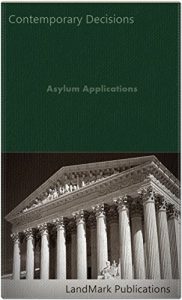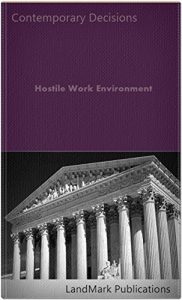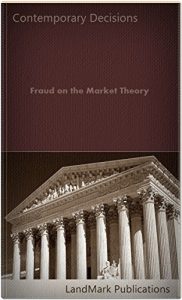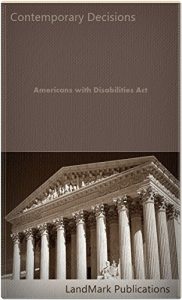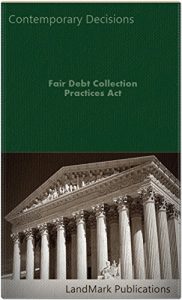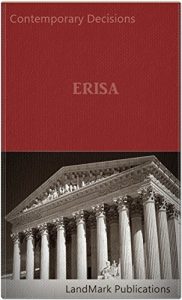THIS CASEBOOK contains a selection of 198 U. S. Court of Appeals decisions that analyze and discuss issues stemming from asylum applications. The selection of decisions spans from 2007 to the date of publication.
American immigration law provides three primary forms of relief for aliens at risk of persecution if returned to their home countries: withholding of removal under the I.N.A., 8 U.S.C. § 1231(b)(3); withholding of removal under the United Nations Convention Against Torture ("CAT"), as provided in 8 C.F.R. §§ 208.16-18; and asylum under 8 U.S.C. § 1158. Marouf v. Lynch, 811 F. 3d 174 (6th Cir. 2016).
"To prevail on a petition for withholding of removal under the INA, [§ 1231(b)(3)], an alien must show that it is more likely than not that he would be subject to persecution ... were he removed from this country." Shkulaku-Purballori v. Mukasey, 514 F.3d 499, 503 (6th Cir.2007) (citations and internal quotation marks omitted). "[T]o be eligible for withholding of removal under the Convention, [an] applicant [must show] it is more likely than not that he ... would be tortured if removed...." Id. (citations and internal quotation marks omitted). These forms of relief are mandatory, provided that the applicant has not rendered himself statutorily ineligible for them. See 8 U.S.C. § 1231(b)(3)(A) [Footnote omitted.] ("[subject to enumerated exceptions,] the Attorney General may not remove an alien to a country if the Attorney General decides that the alien's life or freedom would be threatened in that country because of the alien's race, religion, nationality, membership in a particular social group, or political opinion...."); 8 C.F.R. § 208.16(c)(4) ("If the immigration judge determines that the alien is more likely than not to be tortured in the country of removal, the alien is entitled to protection under the Convention Against Torture."). Marouf v. Lynch, ibid.
An alien subject to removal may obtain asylum if he is a refugee that suffered past persecution, or fears future persecution, due to "race, religion, nationality, membership in a particular social group, or political opinion." 8 U.S.C. § 1158(b)(1). Additionally, removal of an alien must be withheld "if the Attorney General decides that the alien's life or freedom would be threatened in that country because of the alien's race, religion, nationality, membership in a particular social group, or political opinion." 8 U.S.C. § 1231(b)(3)(A). An alien cannot receive asylum or withholding of removal, however, if "the alien, having been convicted by a final judgment of a particularly serious crime, constitutes a danger to the community of the United States." § 1158(b)(2)(A)(ii) (asylum); see also § 1231(b)(3)(B)(ii) (withholding of removal). Samba v. Lynch, (5th Cir. 2016).
A petitioner seeking asylum must establish that "race, religion, nationality, membership in a particular social group, or political opinion was or will be at least one central reason for" persecution that the government is unable or unwilling to control. 8 U.S.C. § 1158 (b)(1)(B)(i). The petitioner has the burden to prove that a nexus exists between the persecution and a protected ground. Khudaverdyan v. Holder, 778 F.3d 1101, 1106 (9th Cir. 2015). Whistleblowing "may constitute political activity sufficient to form the basis of persecution" where petitioner's whistle blew against corrupt government officials, Grava v. I.N.S., 205 F.3d 1177, 1181 (9th Cir. 2000), and he was targeted for persecution on account of that political opinion, whether actual or imputed. See Sagaydak v. Gonzales, 405 F.3d 1035, 1042 (9th Cir. 2005). Lkhagvasuren v. Lynch, (9th Cir. 2016).
American immigration law provides three primary forms of relief for aliens at risk of persecution if returned to their home countries: withholding of removal under the I.N.A., 8 U.S.C. § 1231(b)(3); withholding of removal under the United Nations Convention Against Torture ("CAT"), as provided in 8 C.F.R. §§ 208.16-18; and asylum under 8 U.S.C. § 1158. Marouf v. Lynch, 811 F. 3d 174 (6th Cir. 2016).
"To prevail on a petition for withholding of removal under the INA, [§ 1231(b)(3)], an alien must show that it is more likely than not that he would be subject to persecution ... were he removed from this country." Shkulaku-Purballori v. Mukasey, 514 F.3d 499, 503 (6th Cir.2007) (citations and internal quotation marks omitted). "[T]o be eligible for withholding of removal under the Convention, [an] applicant [must show] it is more likely than not that he ... would be tortured if removed...." Id. (citations and internal quotation marks omitted). These forms of relief are mandatory, provided that the applicant has not rendered himself statutorily ineligible for them. See 8 U.S.C. § 1231(b)(3)(A) [Footnote omitted.] ("[subject to enumerated exceptions,] the Attorney General may not remove an alien to a country if the Attorney General decides that the alien's life or freedom would be threatened in that country because of the alien's race, religion, nationality, membership in a particular social group, or political opinion...."); 8 C.F.R. § 208.16(c)(4) ("If the immigration judge determines that the alien is more likely than not to be tortured in the country of removal, the alien is entitled to protection under the Convention Against Torture."). Marouf v. Lynch, ibid.
An alien subject to removal may obtain asylum if he is a refugee that suffered past persecution, or fears future persecution, due to "race, religion, nationality, membership in a particular social group, or political opinion." 8 U.S.C. § 1158(b)(1). Additionally, removal of an alien must be withheld "if the Attorney General decides that the alien's life or freedom would be threatened in that country because of the alien's race, religion, nationality, membership in a particular social group, or political opinion." 8 U.S.C. § 1231(b)(3)(A). An alien cannot receive asylum or withholding of removal, however, if "the alien, having been convicted by a final judgment of a particularly serious crime, constitutes a danger to the community of the United States." § 1158(b)(2)(A)(ii) (asylum); see also § 1231(b)(3)(B)(ii) (withholding of removal). Samba v. Lynch, (5th Cir. 2016).
A petitioner seeking asylum must establish that "race, religion, nationality, membership in a particular social group, or political opinion was or will be at least one central reason for" persecution that the government is unable or unwilling to control. 8 U.S.C. § 1158 (b)(1)(B)(i). The petitioner has the burden to prove that a nexus exists between the persecution and a protected ground. Khudaverdyan v. Holder, 778 F.3d 1101, 1106 (9th Cir. 2015). Whistleblowing "may constitute political activity sufficient to form the basis of persecution" where petitioner's whistle blew against corrupt government officials, Grava v. I.N.S., 205 F.3d 1177, 1181 (9th Cir. 2000), and he was targeted for persecution on account of that political opinion, whether actual or imputed. See Sagaydak v. Gonzales, 405 F.3d 1035, 1042 (9th Cir. 2005). Lkhagvasuren v. Lynch, (9th Cir. 2016).
